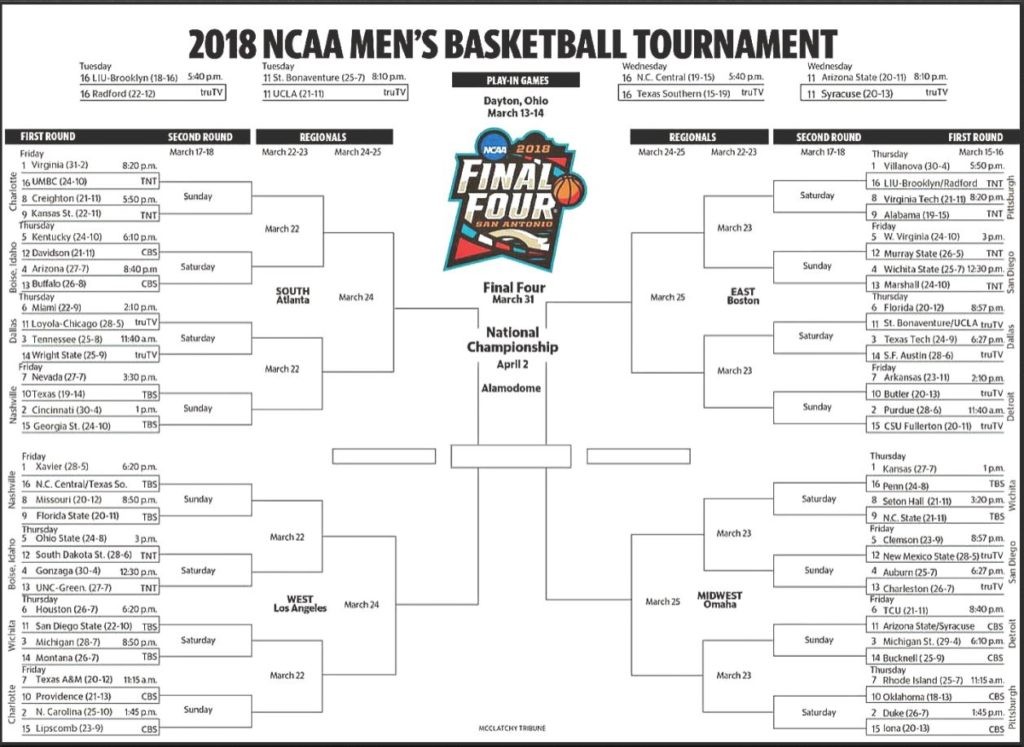March Madness is here and we college basketball fans are excited.
The National Collegiate Athletic Association’s (NCAA) annual ritual is the single most entertaining sports event in the world for me.
It is also a cash cow. The NCAA will get $857 million from Turner this year. Within a few years, it will be generating over $1 Billion in TV revenue alone.
I am also a proud Historically Black College and University (HBCU) graduate of Howard University!
As March Madness grows to include more teams, it is crucial that we fight against efforts that would exclude HBCU’s. The most specific threat against HBCU’s is the call to eliminate the automatic bid system.
The current system allows any Division 1 team that wins its conference championship to secure an automatic bid to the tournament.
This is how you sometimes end up with teams with say a 15-15 record in the tournament. ESPN commentator Jay Bilas, whose opinion I generally respect, would do away with this. His contention is that the best 68 teams should be selected via record, who you played, and where you played them, as well as the infamous “eye test”. In a vacuum, it is a compelling case. Who among us that are sports fans don’t want the best teams in the playoffs?
The problem is that nothing in this world is ever in a vacuum. There is both a historical and current day context for all understanding and college basketball is no different.
The history is that up until 1957, HBCU’s were not permitted to participate at all due to the Jim Crow laws of that day. The National Association of Intercollegiate Athletics (NAIA) was actually the first to admit such schools. The NCAA was forced to admit schools in order to compete. There was a time when only conference champions made the tournament. This is why arguably the greatest team in the history of Maryland basketball did not get to play in the tournament. The 1973-74 team that featured John Lucas, Tom McMillan, and Len Elmore finished 23-5. All of their losses were to North Carolina, 8-time defending champion UCLA, and eventual national champion North Carolina State, that beat Maryland in the Atlantic Coast Conference tournament. Some say that game was the greatest college basketball game ever played. There were calls to eliminate the automatic bid at that time but the alternative of awarding at-large bids won out and was implemented in 1980. This was a boon for the power conference schools, while keeping the automatic bid process.
The tournament has expanded over the years largely due to its incredible popularity. However, with every expansion comes the call to eliminate the automatic bid process.
Doing so would be a deathblow for HBCU basketball.
Contrary to what the current Secretary of Education thinks, HBCU’s were not born out of choice but out of a necessary response to racism. That same factor has always undermined these institutions’ financial struggles. Participation in this tournament not only gives them a rightful cut of the eventual $1 billion TV pie, but also helps with recruitment of both athletes and non-student athletes.
You may think if they want to participate, they should have to earn it like every other school. How did that work out for Central Florida in college football? They went undefeated, concluding by whipping Auburn from the mighty SEC, which beat both title game finalists. Yet they were systemically locked out of any chance to win the college football title. There was nothing that they could do differently because the power schools do not have to play them. The same would and already does happen to HBCU’s. The best they get is a “pay to play” trip across the country to play larger programs for a check. Only in the tournament do they get to compete in a neutral site.
It is not as if HBCU’s have no history of success. Of the eight number 15 seeds to win a game, three were from the Mid-Eastern Athletic Conference (MEAC, the home of my Howard University).
We are talking about a basketball legacy that has produced Willis Reed, Earl Monroe, and Sam Jones. Such talent now rarely considers HBCU’s in basketball, which is a byproduct of the raid that integration brought about. Simply put, the struggles of HBCU basketball are not from bad coaching or management, but they are a direct result of the expansion of opportunities for the players. The automatic bid process is the only safeguard that keeps HBCU’s at the table. The system is rigged to favor the power schools and without the automatic bid, HBCU’s will be shut out.
It should remain and we should fight any argument otherwise.

